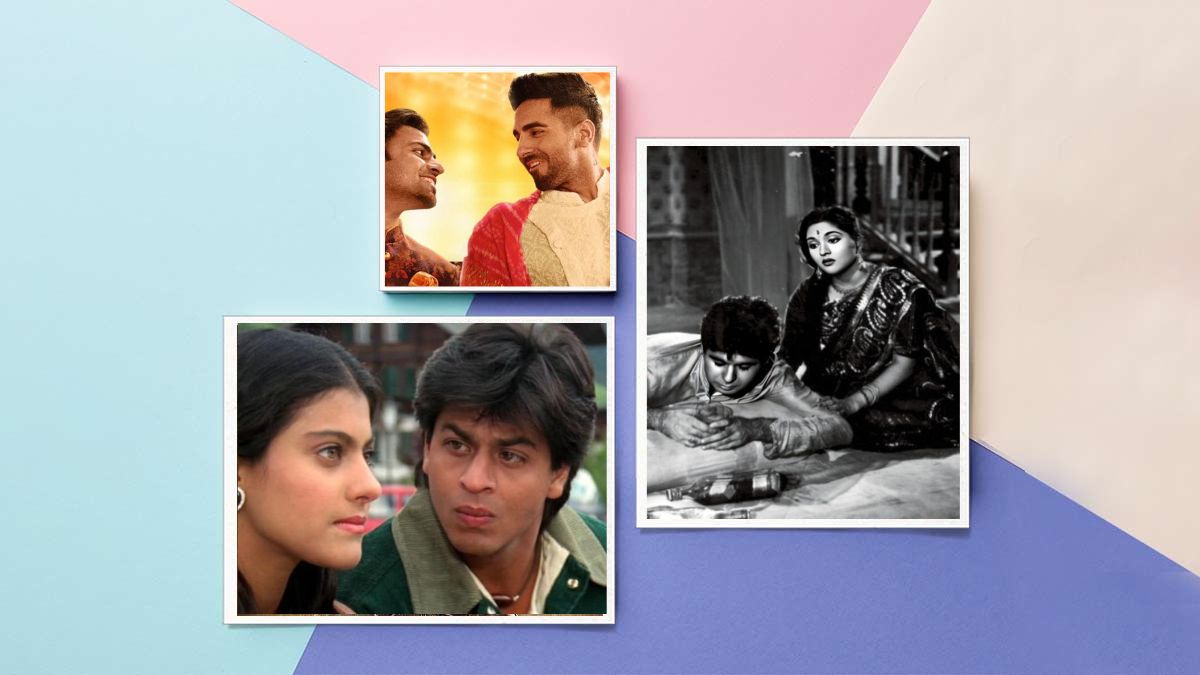
Ah, Bollywood, the realm of colourful dreams, soaring emotions, and, of course, love. Love, in all its forms, has been the beating heart of Indian cinema for decades. But what happens when that love is forbidden, when societal norms and family expectations stand in the way? Bollywood has, over the years, mastered the art of portraying forbidden love in ways that have both shattered and strengthened the conventions of romance. In this article, we'll embark on a journey through time to explore how Bollywood's depiction of forbidden love has evolved.
 Image Courtesy: IMDB
Image Courtesy: IMDB
The early days of Bollywood gave birth to some of the most iconic tales of forbidden love. Take, for instance, Raj Kapoor's 'Awaara' (1951). In this classic, Kapoor plays a young man who defies societal expectations and falls for a woman from a lower socioeconomic background. The film tugs at our heartstrings as it depicts the struggles of this star-crossed couple.
Similarly, 'Devdas,' in its various avatars, has been a cornerstone of Bollywood's exploration of forbidden love. Whether it's the 1955 version starring Dilip Kumar or the more recent adaptation with Shah Rukh Khan, the story remains the same: a man consumed by his love for a woman he can never have, thanks to societal norms and family pressures.
These films, while tragic in their outcomes, beautifully captured the pain and sacrifice associated with forbidden love. The audience empathised with the lovers, feeling the weight of tradition and duty that kept them apart. The song-and-dance sequences served not just as entertainment but as a medium to express the unexpressed emotions of the characters.
 Image Courtesy: IMDB
Image Courtesy: IMDB
The 1990s brought with them a shift in the portrayal of forbidden love. Characters were more rebellious, ready to fight for their love against all odds. Mani Ratnam's 'Dil Se' (1998) is a prime example. In this film, Shah Rukh Khan's character falls in love with a mysterious woman, played by Manisha Koirala, who is involved with a separatist group. The film's backdrop of insurgency adds a layer of danger and intrigue to their love story. It's a departure from the traditional familial opposition and instead places external forces as the primary obstacle.
'Dilwale Dulhania Le Jayenge' (1995) marked a significant shift as well. While it retained the essence of family opposition, it also showcased a more assertive approach to love. Raj and Simran, played by Shah Rukh Khan and Kajol, challenged the traditional arranged marriage concept. Raj's audacity in pursuing Simran won hearts worldwide. This film redefined 'forbidden' in Bollywood, subtly suggesting that true love could indeed conquer all.
Don't Miss: Mahira Khan On Depression: How 'Raees' Backlash Triggered Her Bipolar Disorder
 Image Courtesy: IMDB
Image Courtesy: IMDB
As we moved into the 21st century, Bollywood began to explore more nuanced aspects of forbidden love. Karan Johar's 'Kabhi Alvida Naa Kehna' (2006) delved into the complexities of extramarital affairs and societal judgments. The film's protagonists, played by Amitabh Bachchan, Shah Rukh Khan, Abhishek Bachchan, Rani Mukerji, and Preity Zinta, find themselves trapped in loveless marriages and grapple with the consequences of pursuing their true desires. It's a bold step, as it breaks away from the conventional boy-meets-girl narrative and dives into the intricacies of adult relationships.
Another intriguing example is Sanjay Leela Bhansali's 'Goliyon Ki Raasleela Ram-Leela' (2013). This adaptation of Shakespeare's 'Romeo and Juliet' transplants the classic tale into a small Indian town plagued by feuding families. The forbidden love story is intensified by the backdrop of violence and vendettas. The film doesn't shy away from the dark and passionate side of love, making it a visually striking and emotionally charged experience.
 Image Courtesy: IMDB
Image Courtesy: IMDB
In recent years, Bollywood has taken bold strides in challenging societal norms regarding forbidden love. Films like 'Shubh Mangal Zyada Saavdhan' (2020) have explored the taboo subject of homosexuality in a heartwarming and humorous manner. The film, starring Ayushmann Khurrana and Jitendra Kumar, not only entertains but also advocates for LGBTQ+ rights. It was a watershed moment for Bollywood, signifying its evolving stance on inclusivity.
Bollywood's portrayal of forbidden love has evolved significantly over the decades. From the tragic and traditional to the rebellious and complex, Bollywood has kept pace with changing societal norms and audience expectations. It has challenged taboos and embraced diversity, making its mark not only as a source of entertainment but also as a mirror reflecting the evolving attitudes of Indian society.
Also watch this video
Herzindagi video
Our aim is to provide accurate, safe and expert verified information through our articles and social media handles. The remedies, advice and tips mentioned here are for general information only. Please consult your expert before trying any kind of health, beauty, life hacks or astrology related tips. For any feedback or complaint, contact us at compliant_gro@jagrannewmedia.com.